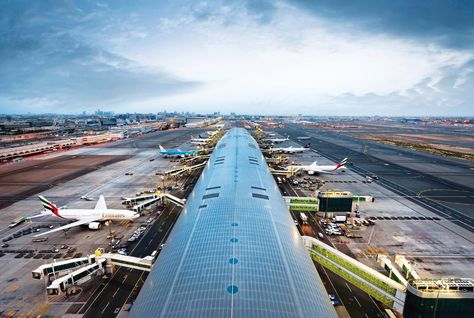Passenger waiting times at Dubai International Airport (DXB) have dropped by as much as 10% during the first quarter of 2017 thanks to the implementation of new technologies at the world’s busiest airport for international passenger traffic.
Operator Dubai Airports said in a statement that recent results show that in the first three months of 2017, 84 percent of transfer passengers were processed within 5 minutes, 68% of arrival passengers were processed within 15 minutes, and 87 percent of departing passengers were processed within 10 minutes.
It said the technology driving down transaction times and queues at immigration check points include Smart Gates which have pushed down transaction times to an average of 10 to 15 seconds per passenger.
Since its introduction last year over 1.3 million UAE users have taken advantage of the service.
Shorter waiting times have also been boosted by a sophisticated motion sensor system that allows the airport to track queues in real time.
The sensors track the movement of people, collecting and computing valuable data like passenger wait times and queue lengths, and based on those factors, calculating the prevailing level of service. They enable Dubai Airports operational staff to quickly identify bottlenecks and facilitate the deployment of resources to address them.
Currently available in Terminals 1 and 3, Terminal 2 implementation is slated to take place later this year.
“This automated system provides us with timelier and more accurate data more quickly than the manual system that was used previously,” said Frank McCrorie, Dubai Airports’ senior vice president of operations at DXB.
“As a result, the operations team and other organisations that work across the airport now have a bird’s eye view of bottlenecks, allowing them to better manage staffing levels and lanes, and improve the overall customer experience. We have more work to do in this area, but we are pleased with progress to date.”
The new technologies support Dubai Airports’ DXB Plus programme designed to improve service while increasing capacity to 118 million passengers at DXB by 2018.

Advertisement









 Search our database of more than 2,700 industry companies
Search our database of more than 2,700 industry companies









